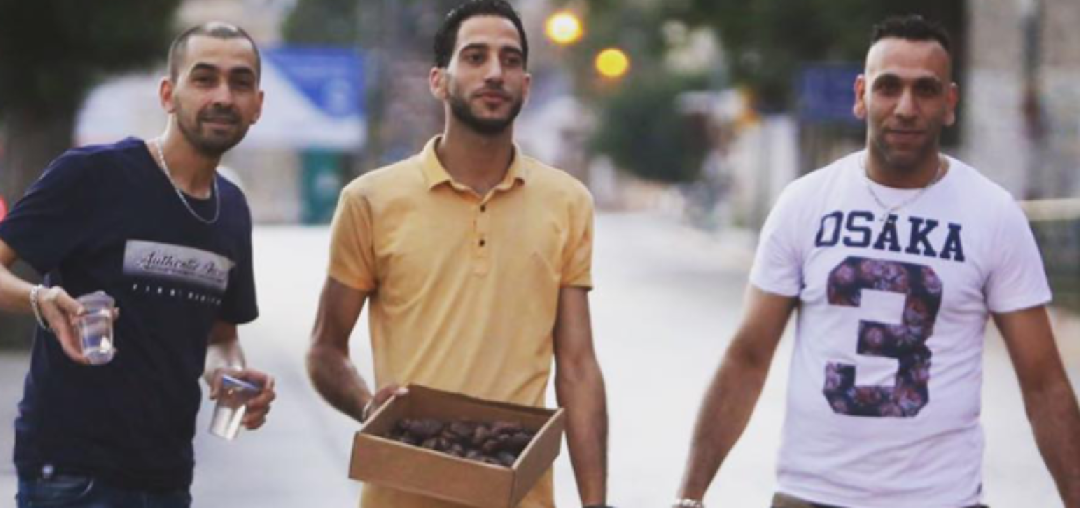“From our people to our people” is what a working mother of four had to say about why she does what she does during the month of Ramadan. Nassim Zitawi, a Palestinian woman living in Ramallah initially started a project with her friend to cook homemade food to those in need. Unfortunately, when her friend was diagnosed with cancer, the project had to stop, but Nassim decided to continue by collecting money from friends at work, buying goods for families which lack support, and sharing leftovers from “Iftar”to give to those that would appreciate the gesture.
Nassim focuses on families of orphans and widows in unnoticed places and refugee camps like Qadoora Al Jalazon. Her project receives the greatest support during Ramadan, as she thinks that Ramadan is when people feel the need to give out more than they do in regular months. However, she doesn’t like to call what she does a “project” as she feels it’s a duty rather than a project. Her friends send their kids with her to help during Ramadan to become more appreciative of their lives.
When I joined her on a few rounds this Ramadan, I thought it would be a simple procedure of knocking on doors and handing out packages to families. However Nassim doesn’t simply deliver food, she forms a personal relationship with each family– the mothers who lost their young to cancer, kids who became orphans a few months back, and the old lady who has been abandoned by her sons.
All these stories are now personal to Nassim, she becomes their friend and they become her family. What I noticed from this experience is that Nassim and her daughter Tala never let their social status get in the way of interacting with people; they instantly make everyone comfortable, and in return, we were invited into each house we stopped by! Nassim has helped hundreds of families since she started six years ago.
“Religion is a matter of treatment,” says Khalil Kawa, a Palestinian Christian from Nablus, who finds Ramadan to be the perfect opportunity to erase the stigma behind religious differences. Alongside his friends, Khalil distributes dates and bottles of water to cars stuck in traffic during the Maghrib Adan, which is when Muslims break their fast.
He began this project using his own money, and as his team grew, other people in the community, both Christian and Muslim, started donating so that he’d have enough supplies to hand out. Even a priest gathered supplies to distribute alongside Khalil and Mosques have joined as well.
When I asked Khalil about his motivation, he said, “We love our country and the people of this country. Sometimes we see unnecessary discrimination and sectarianism, which is why I do what I do.” He appreciates that other people started joining this initiative and they are able to have a larger impact. Khalil also acknowledges the negative feedback, he commented “I look at 95% and ignore the 5%”. I was very touched with his attitude towards negativity as he never allows it to get in between what he does and the message he carries with his actions. For Khalil “Palestine is different from the rest of the world.”
Do you know of other local community projects during this month?
We are certain there are many more! Share them with us here for inspiration. And Ramadan Kareem!
Zeina Melhem is a sophomore media student at al-Quds Bard College. She enjoys investigative journalism and writing and looks forward to being a part of crowdsolving projects that support her local community.

